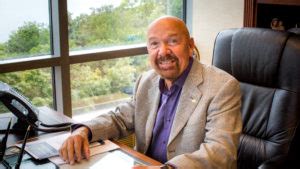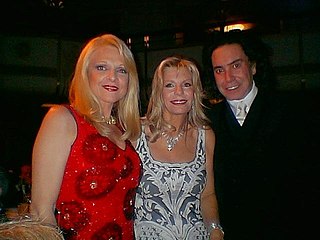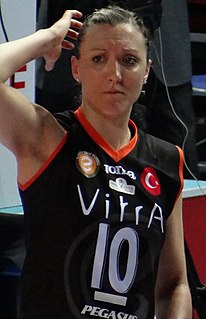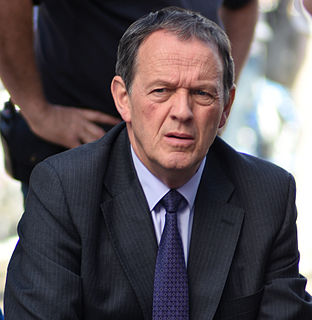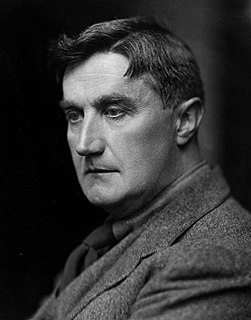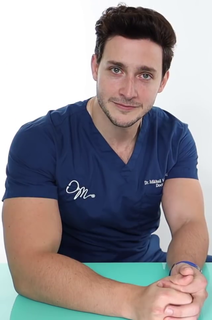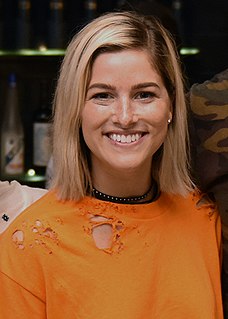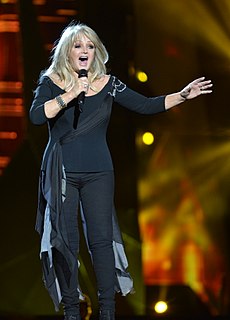A Quote by Anthony Doerr
I originally got very interested in memory in high school when my grandmother came to live with us. She had been diagnosed with dementia. It was the first time I had heard the word 'Alzheimer's disease.'
Related Quotes
I've had five grandparents who have had Alzheimer's. I've been involved in raising money for two decades, so I thought, how could I combine my work with this commitment to helping dementia? One of the myths is that it's an older person's disease. We're seeing early onset dementia among people at 45. It's the disease of everybody.
We've had numerous people diagnosed with Alzheimer's who got better; they just come out of it; they are leading normal lives today. And then, of course, what the doctors say is it's not Alzheimer's. You run into that Catch-22 all the time. They say, well, it was probably just a temporary premature dementia, and they write-off the recovery to preserve their ignorance.
The Alzheimer's Association in the United States, founded by Jerome Stone, they found me because they had heard rumours that my mom was diagnosed. Jerry said, 'We're a small family group, and we would like to know if you'd like to join us and to spread the word about this disease.' I said, 'Absolutely.'
At that moment a very good thing was happening to her. Four good things had happened to her, in fact, since she came to Misselthwaite Manor. She had felt as if she had understood a robin and that he had understood her; she had run in the wind until her blood had grown warm; she had been healthily hungry for the first time in her life; and she had found out what it was to be sorry for someone.
I think, in general, medicine in the 21st century will switch from healing the sick to upgrading the healthy... If you find ways to repair the memory damaged by Alzheimer's disease or dementia and so forth, it is very likely that the same methods could be used to upgrade the memory of completely healthy people.
I chose the Pink Fund because my mom was diagnosed with breast cancer and I was pretty young in high school. At the time when she got re-diagnosed, my family had to move and they lost a job. Times were tough a little bit financially. The Pink Fund allows money to be raised to help women in need. I'm really excited to be able to represent that.
My first deepening of spirituality came when I was 6, when I was moved from my grandmother and sent to live with my mother - whom I really did not know - who had moved to Milwaukee. Something inside myself knew that I was never going to see my grandmother again - I would be wasting my time to live in that space of wanting that.
There [is] a feeling of recognition, as of meeting an old friend, which comes to us all in the face of great artistic experiences. I had the same experience when I first heard an English folksong, when I first saw Michelangelo's Day and Night, when I suddenly came upon Stonehenge or had my first sight of New York City - the intuition that I had been there already.
Originally, I was in high school, and I was studying biology, and I got really interested in the field of medicine. And then, I got a lot of early exposure to it because my father's a physician, and I saw the relationship that he had with his patients, and it was something that drew my attention to how wonderful the field was.
I came from a private school, and public high school was the first time I ever went to a public school. So I went into it very preppy; I was wearing a lot of Abercrombie and Hollister. Then, my sophomore year, I started listening to rock bands. I had a boyfriend that took me to my first rock show, and I was just addicted to that.
Alzheimer's is a horrible thing. Some people are naive about it. They think, 'Oh it's just your memory,' but my mother was in terrible pain. Your body closes down. She didn't know if she'd eaten or if she wanted to eat. She couldn't remember how to walk. Towards the end, she didn't know us. It came gradually, then it got worse.



